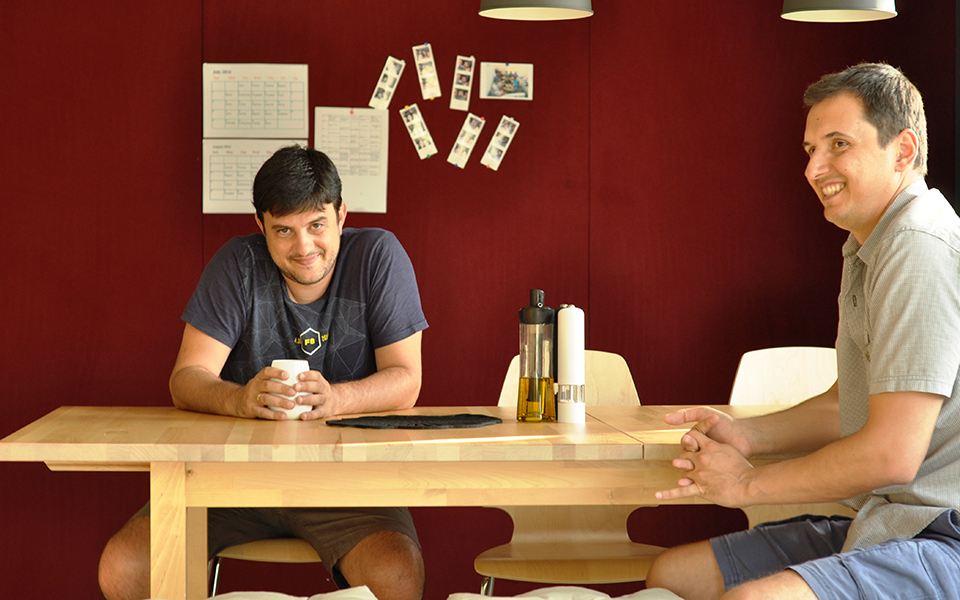In the spring of 2012, 35-year-old Imperial College graduate Nikos Moraitakis was an Upstream executive in Dubai, far away from the noise of crisis-stricken Greece. But when a new round of elections was announced back home in May that year – a situation which would lead the country to the brink of a Grexit – he decided to return and set up his own company together with fellow Upstream executive Spyros Magiatis. Perhaps in response to those who felt his decision was crazy, Moraitakis had already created “The Drachma Start-up,” a blog with a telling subtitle: “Diary of an Entrepreneur with Incredibly Bad Timing.”
Three years later, their company, Workable, which develops software to facilitate the hiring process for companies, is reaffirming its reputation as the country’s most promising start-up firm. Recently, the company announced it was set to receive the largest amount of funding ever given to a local start-up – 27 million dollars. The financing comes from core investor Balderton Capital as well as Notion Capital and 83North (formerly Greylock IL, the venture capital firm which headed a previous round of funding).
Workable currently employs 48 people, compared to 30 at the beginning of the year, while its turnover has risen fivefold in the space of 12 months.
Meanwhile, the company’s client base is increasing by 15 percent every month and, according to Moraitakis, the target is for revenues to quadruple by the end of 2016.
More than 3,000 companies in 52 countries use the company’s software, which, according to Daniel Howden, Workable’s vice president for marketing, “democratizes hirings” by allowing small to medium-sized companies lacking specialized human resources departments to compete with larger firms in the headhunting process.
The company operates primarily in Athens – with a staff of 36 – as well as London and Boston (now the company’s headquarters). “We hope to continue with the majority of employees working in Greece, as we plan to increase our staff to 150 people within the next year,” CEO Moraitakis told Kathimerini. Most of the members of the Greek team, “who are earning salaries that are considerably higher than the market average,” belong to one of the age categories worst hit by the crisis, 25 to 35 year-old graduates, said Moraitakis. Now the fresh funding will go toward the company’s growth plans.
“We will triple the R&D team in order to speed up product development and we will further invest in marketing and sales networks to gain access to a broader audience,” said Moraitakis. The potential audience is vast: in the United States alone there are 22 million small to medium-size firms with less than 500 employees.
A lot has happened since the “Drachma Start-up” days. While Workable has been steadily growing, the local start-up ecosystem has also been sending out some hopeful messages. What lies at the heart of this ecosystem is an alternative entrepreneurial philosophy.
“When employees are stockholders they have a very different approach,” said Marco Veremis, CEO and co-founder of Upstream, out of whose ranks companies such as Workable and Persado emerged. “It’s beneficial for the company they work for, but it also prepares them to build something of their own one day.”
In the meantime, Greece has made very little progress during the same period. Three months ago, the country came closer than ever to exiting the eurozone, and Prime Minister Alexis Tsipras has mentioned the importance of start-up companies. What would be needed for start ups to thrive?
“Political and economic stability,” said Moraitakis. “Start-ups don’t require immediate assistance and we don’t expect the problems of the Greek economy to be solved overnight. However, extreme instability does not make for an attractive climate capable of luring executives back to the country. We managed to do this. But since last summer, all those who could have returned felt a sense of increased danger. It’s more likely that they will wait for the situation to become more stable.”











